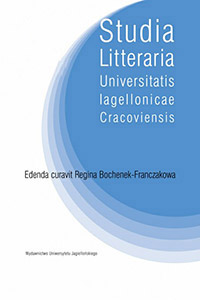Postcolonialism in Mediaevalist fi lms: The European Transculturalism of King Arthur (2004) and the Kazakh Nationalism of Nomad (2005)
Postcolonialism in Mediaevalist fi lms: The European Transculturalism of King Arthur (2004) and the Kazakh Nationalism of Nomad (2005)
Author(s): Christoph HouswitschkaSubject(s): Studies of Literature
Published by: Wydawnictwo Uniwersytetu Jagiellońskiego
Keywords: Postcolonialism; nationalism; trans-nationalism; medievalism; Arthur; Nomad;Kazachstan
Summary/Abstract: King Arthur (2004) and Nomad (2005) both choose a medievalist setting aiming for audiences. Both films tell stories of young war lords during periods of political transition which question old allegiances and loyalties redefining national and cultural belongings. Arthur brings the Saxon invasion to a brief halt in the period of Roman retreat and Mansur (alias Ablai Khan) leads Kazakhstan into freedom in the eighteenth century. Both heroes are grappling with alienation from their origins caused by colonial hegemony. Coping with the instabilities of their hybrid identities they choose opposing ways of building new identities. Arthur Fuqua’s king takes on the challenge of merging various cultural heritages founding a civilization that symbolizes the transnational aspirations of contemporary Europe. Sergei Bodrov‘s Mansur annihilates Kazakh colonial past when he unknowingly kills his brother in arms. Erali‘s sacrifice ends the endless disputes of the Kazakhs that originate in their hybrid identity thwarting national restoration. Thus both films serve ambiguous ideological purposes by defining a hostile other. The Saxon invaders represent racist Nazis who were defeated in order to create modern Europe. The defeat of the Jungar invaders helps constructing an essentialist historical order in which the creation of Kazachstan appears to be the restoration of a pre-modern nation. Both films show the ideological power of mediaevalism offering multi-layered methods of addressing a diverse global audience.
Journal: Studia Litteraria Universitatis Iagellonicae Cracoviensis
- Issue Year: 10/2015
- Issue No: 2
- Page Range: 107-120
- Page Count: 14
- Language: English

